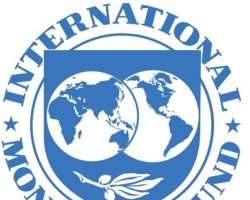Statement at the End of an IMF Mission to the Democratic Republic of the Congo

KINSHASA, Dem. Rep. of Congo (DRC) December 12, 2014/African Press Organization (APO)/ -- A technical team from the International Monetary Fund (IMF) headed by Norbert Toé visited Kinshasa during December 3–10, 2014. The team reviewed recent economic developments and short-term prospects, updated the macroeconomic framework, and discussed possible themes for the 2015 Article IV Consultation with the Democratic Republic of the Congo (DRC). At the end of the mission, Mr. Toé issued the following statement:
“Despite a challenging external and domestic environment, the DRC's economy continues to show resilience with positive trends in key macroeconomic indicators. However, it remains highly dependent on the mining sector, which makes it vulnerable to volatile commodity prices.
“Macroeconomic performance remains strong with growth in GDP expected to reach 9 percent in real terms in 2014 and inflation to be below 2 percent. Growth continues to be driven essentially by increases in mining output and, to some extent, higher production in the agricultural sector. The current account position improved marginally with the deficit declining from 11 to 8.9 percent of GDP. Nevertheless, international reserves will be stagnant at their relatively low level. In 2015, growth is expected to continue, supported by the buoyancy of the mining sector and the expansion of agriculture. The main risk to the economic outlook arises from a decline in copper and cobalt prices, which account for about 98 percent of exports of goods and 44 percent of nominal GDP.
“Fiscal developments are characterized by a slight decline in tax revenues. The performance of the value added tax (VAT) remains weaker than expected as a result of the lack of controls. In addition, total spending stagnated in 2014. Consequently, the overall fiscal balance is expected to move from a small surplus of 0.3 percent of GDP in 2013 to a deficit of 1.3 percent of GDP in 2014.
“Preserving a sound and stable macroeconomic framework remains key going forward. Such stability is mainly based on a balanced and credible budget, whose revenue should increase rapidly to meet DRC's development needs. In this regard, it is important the authorities move rapidly to implement the recommendations of various technical assistance missions aimed at accelerating domestic resource mobilization.
“The reforms implemented to de-dollarize the Congolese economy remain a priority. Several initiatives have already been implemented to start the de-dollarization process. In the coming months, it will be essential to support the recapitalization of the Central Bank of the Congo (BCC) in accordance with international standards. Reforms should also target the development of the financial sector so that it can fully contribute to the financing of the development of the DRC.
“The mission wishes to thank the authorities for their warm hospitality and for their close and constructive cooperation.”
The staff team met with Prime Minister Augustin Matata Ponyo; Deputy Prime Minister and Minister of Budget Daniel Mukoko Samba, Minister Delegate in charge of Finance Patrice Kitebi; Deputy Governor of the BCC, Bondombe Assango, and other senior officials. The mission also met with representatives of the private sector and donors.
